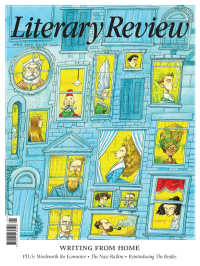Oliver Balch
The Great Bean Counter
Coffeeland: A History
By Augustine Sedgewick
Allen Lane 433pp £25
On 31 October 1979, two jeeps full of armed men from the People’s Revolutionary Army of El Salvador burst into Jaime Hill’s compound in San Salvador, dispatched his security personnel and promptly kidnapped him. They demanded an $8-million ransom, plus Hill’s armoured car. The Scotch-drinking playboy rustled up half the money and was eventually released, sin vehículo.
So runs the adrenaline-fuelled opening scene of Coffeeland. In the spirit of all classic whodunnits, Augustine Sedgewick delivers the crime upfront. But who are the main players? And how did we get here? The remainder of this erudite and engrossing socioeconomic history provides the answers to these two basic questions.
The first is easier than the second. The wastrel heir of a Salvadoran coffee empire, Hill plays just a bit part in the story. It is the creator of his inherited fortune on whom the book focuses. To learn who he is, we must return to the slums of Manchester

Sign Up to our newsletter
Receive free articles, highlights from the archive, news, details of prizes, and much more.@Lit_Review
Follow Literary Review on Twitter
Twitter Feed
In 1524, hundreds of thousands of peasants across Germany took up arms against their social superiors.
Peter Marshall investigates the causes and consequences of the German Peasants’ War, the largest uprising in Europe before the French Revolution.
Peter Marshall - Down with the Ox Tax!
Peter Marshall: Down with the Ox Tax! - Summer of Fire and Blood: The German Peasants’ War by Lyndal Roper
literaryreview.co.uk
The Soviet double agent Oleg Gordievsky, who died yesterday, reviewed many books on Russia & spying for our pages. As he lived under threat of assassination, books had to be sent to him under ever-changing pseudonyms. Here are a selection of his pieces:
Literary Review - For People Who Devour Books
Book reviews by Oleg Gordievsky
literaryreview.co.uk
The Soviet Union might seem the last place that the art duo Gilbert & George would achieve success. Yet as the communist regime collapsed, that’s precisely what happened.
@StephenSmithWDS wonders how two East End gadflies infiltrated the Eastern Bloc.
Stephen Smith - From Russia with Lucre
Stephen Smith: From Russia with Lucre - Gilbert & George and the Communists by James Birch
literaryreview.co.uk